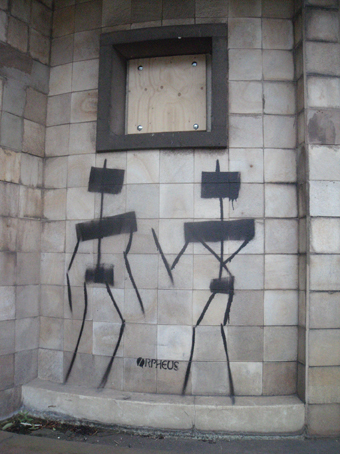Whether highly-publicised killings of young people by knives, or what one lone worker safety trainer calls the ‘drip-drip’ of verbal, non-verbal and even physical abuse against front-line staff, violence and aggression is a problem across business sectors, and times of day. In the first of a trio of articles, we ask where and how big the problem is.
As one of the speakers put it at a recent crime seminar by the Association of Convenience Stores, some people have no faith in police response (to incidents of assaults or other crimes against retail). If businesses don’t report such crimes, police don’t record them, and don’t have a true picture of crime. That problem of under-reporting is true of many crimes – domestic violence, historic child abuse. It’s more than anecdotal. A recent survey by the shop worker trade union Usdaw found that members mostly did not report crimes, to their managers or police, because they felt it would make no difference. While a recent campaign launched by the retail trade and funded by the Home Office would address that – urging shop staff to report every incident – cynics would ask what would happen if all those extra crimes were reported; would police and courts direct more resources to crime against business? It would go against the grain of cuts to criminal justice; fewer courts, meaning less local justice. ‘Demand management’ may cynically be making crime harder to get acted upon at every stage, from initial report (the Home Office-backed campaign asks that incidents if not 999 emergencies be reported through the non-emergency line 101, and the confidential reporting line Crimestoppers; how well are victims kept in touch with their cases?).
One retail speaker at the ACS seminar complained of ‘mixed messages’ from government, such as prisons minister Rory Stewart airing the idea of stopping prison sentences of less than six months, arguing that they do not work. Given that most retail criminals – if ever sentenced to prison, after innumerable fines and community sentences – are sent to prison for less than six months, Stewart’s idea would in effect mean crime against retail would never merit prison. And you do not have to prod retail managers or contract guarding companies very hard to hear of cases of shop security guards being threatened with syringes, or robbers threatening extreme violence to get their way – even for what might seem, and what once would have been, disproportionately low returns.
The Home Office minister Victoria Atkins sent a message of her own when she spoke to the ACS seminar – by recorded video. As previously she chose not to attend the ACS event – which might mean she faced questions and be button-holed – even though the 2019 event in Westminster was a mere 300m from the Home Office. By contrast the next day Atkins spoke at an event on modern slavery. The difference is that modern slavery – and how to combat it in supply chains – is fashionable, and the Home Office can point to things it is doing about it (which is not the same as saying that the authorities are succeeding against it): a 2015 Act. Violence against people doing their job, you would think, would be of more interest to more voters than wrongs done against vulnerable people, often (illegal) immigrants. However the Home Office and those in authority in general cannot make much of a case for tackling violence.
For all that was said at the ACS seminar had all been said before, for years. Everyone knows that some people are temperamentally anti-social, for whatever reason – such as, they are addicts stealing to fund their drugs, or organised criminals ready to threaten or resort to violence if cornered. Such people are not angels until they step onto the high street; they are also swearing, being anti-social and violent on buses and trains, when they go into pubs, at home to family, and so on. Businesses have had reasons for being shy to report crime and disorder; such as, if a pub or off-licence reports drink-related trouble, might it be held against them when they next apply for their licence? Consider that London buses like the New York mass transit used to be a by-word for graffiti and a thoroughly unpleasant journey – and according to the ‘broken window’ theory, by making buses and trains look crime-ridden, vandals thereby staked claims to those places. Go on a London bus or Tube train now, and you have to hunt for any graffiti. Why the change for the better? Have people gone off making graffiti? Not judging by walls and trackside. The difference has purely been CCTV, of a quality to identify any offenders, then arrested and prosecuted. You cannot have one without the other; the business acting to protect itself, and the criminal justice system using the evidence the business provides.
Next: what businesses can and are doing – and what’s still to do.
Picture by Mark Rowe; graffiti, Leeds.









